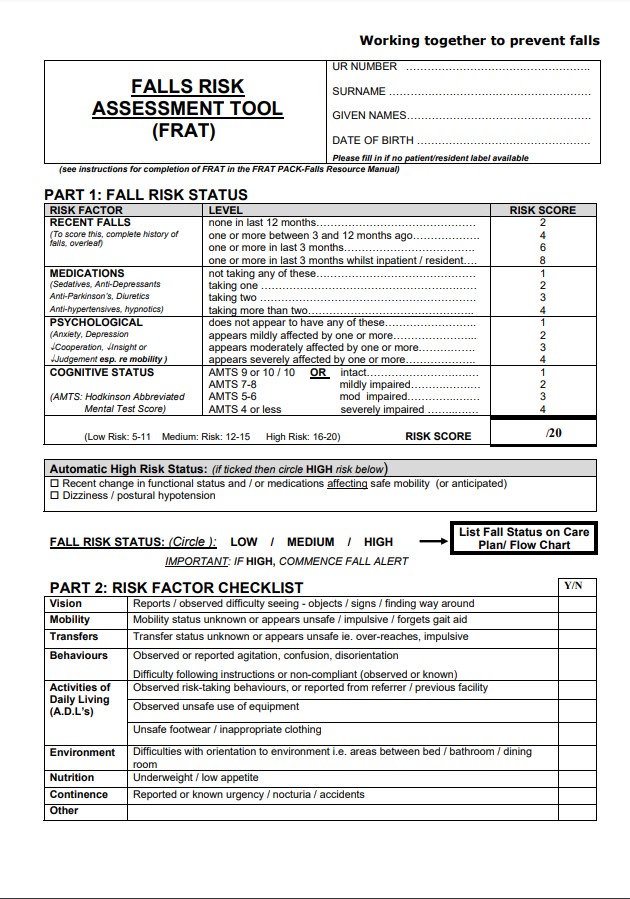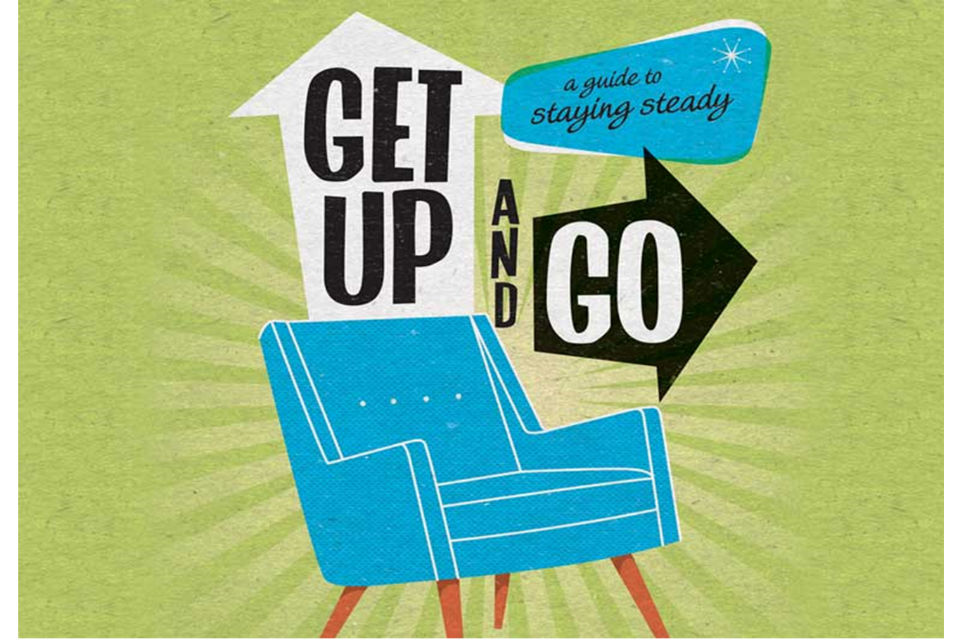Dementia Fall Risk for Dummies
Table of ContentsHow Dementia Fall Risk can Save You Time, Stress, and Money.All about Dementia Fall RiskAbout Dementia Fall RiskThe Main Principles Of Dementia Fall Risk The Best Strategy To Use For Dementia Fall Risk
The FRAT has 3 areas: fall risk condition, threat variable checklist, and action strategy. An Autumn Danger Standing includes data regarding background of current drops, drugs, psychological and cognitive status of the client - Dementia Fall Risk.If the individual ratings on a risk element, the matching number of points are counted to the individual's autumn threat rating in package to the much appropriate. If a person's loss risk score totals five or greater, the person is at high danger for drops. If the patient scores only 4 points or lower, they are still at some danger of falling, and the registered nurse should use their best medical evaluation to handle all loss danger elements as part of a holistic treatment strategy.
These basic approaches, in general, aid develop a secure environment that minimizes accidental falls and marks core preventive procedures for all patients. Indications are essential for clients at threat for falls.
Little Known Facts About Dementia Fall Risk.
Wristbands need to consist of the patient's last and first name, date of birth, and NHS number in the UK. Details should be printed/written in black against a white background. Only red color must be utilized to signify unique person status. These referrals are constant with present growths in individual identification (Sevdalis et al., 2009).
Things that are also far might require the individual to get to out or ambulate needlessly and can potentially be a danger or add to drops. Helps stop the person from heading out of bed with no help. Registered nurses react to fallers' telephone call lights faster than they do to lights launched by non-fallers.
Aesthetic impairment can greatly cause falls. Maintaining the beds closer to the flooring reduces the risk of falls and severe injury. Positioning the mattress on the flooring dramatically lowers fall danger in some healthcare settings.
Rumored Buzz on Dementia Fall Risk
Clients that are tall and with weak leg muscles who try to rest on the bed from a standing setting are most likely to fall onto the bed due to the fact that it's too low for them to lower themselves safely. Additionally, if a tall patient attempts to stand up from a low bed without aid, the client is most likely to fall back down onto the bed or miss out on the bed and drop onto the floor.
They're made to promote timely rescue, not to avoid drops from bed. Distinct alarms can additionally remind the individual not to stand up alone. The use of alarms can additionally be right here an alternative to physical restraints. Other than bed alarms, enhanced guidance for risky patients likewise may aid avoid drops.

Individuals with a shuffling gait boost autumn chances dramatically. To decrease loss danger, footwear should be with a little to no heel, thin soles with slip-resistant walk, and sustain the ankle joints.
An Unbiased View of Dementia Fall Risk
In a research study, homes with sufficient lighting report fewer falls (Ramulu et al., 2021). Improvement in lights you can check here at home might reduce autumn prices in older grownups.

Sitters are reliable for guaranteeing a safe, safeguarded, and risk-free setting. Nonetheless, research studies showed very low-certainty evidence that sitters minimize fall risk in intense care hospitals and only moderate-certainty that alternatives like video clip tracking can decrease caretaker use without enhancing loss danger, recommending that sitters are not as helpful as originally believed (Greely et al., 2020).
Dementia Fall Risk Can Be Fun For Anyone

Enhanced physical fitness minimizes the risk for drops and limits injury that is received when fall takes place. Land and water-based exercise programs might be similarly advantageous on equilibrium and gait and therefore minimize the risk for falls. Water workout may add a positive advantage on useful content balance and stride for women 65 years and older.
Chair Surge Exercise is a straightforward sit-to-stand exercise that aids enhance the muscles in the upper legs and buttocks and enhances mobility and freedom. The goal is to do Chair Increase workouts without using hands as the customer ends up being stronger. See resources area for a thorough direction on how to do Chair Increase exercise.
Comments on “Getting The Dementia Fall Risk To Work”